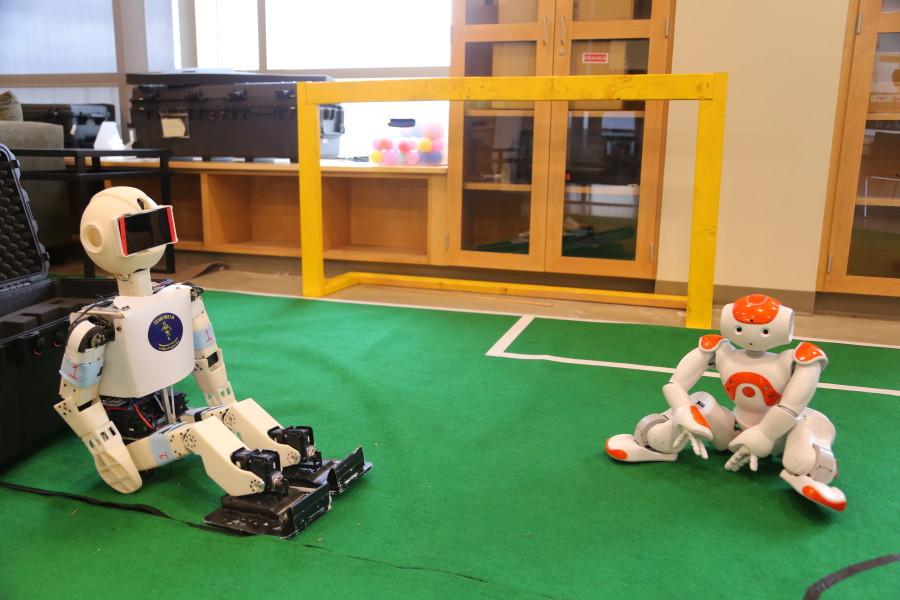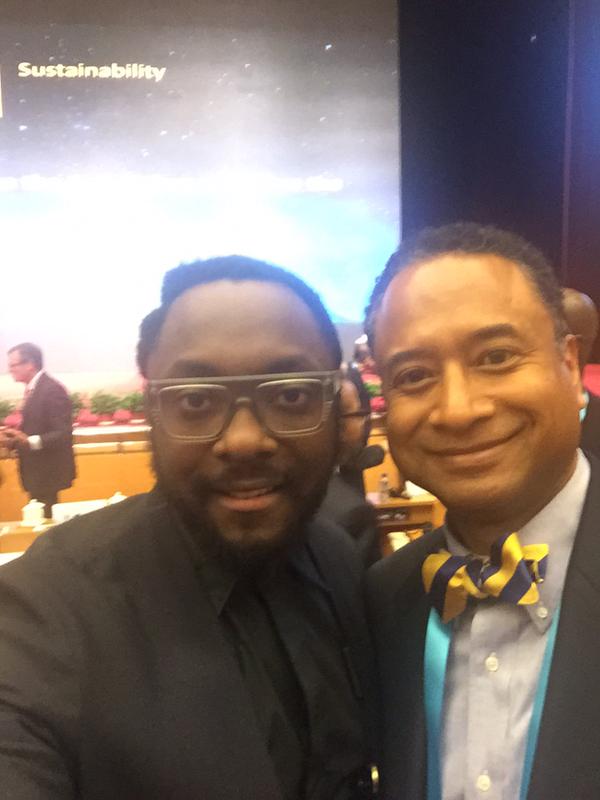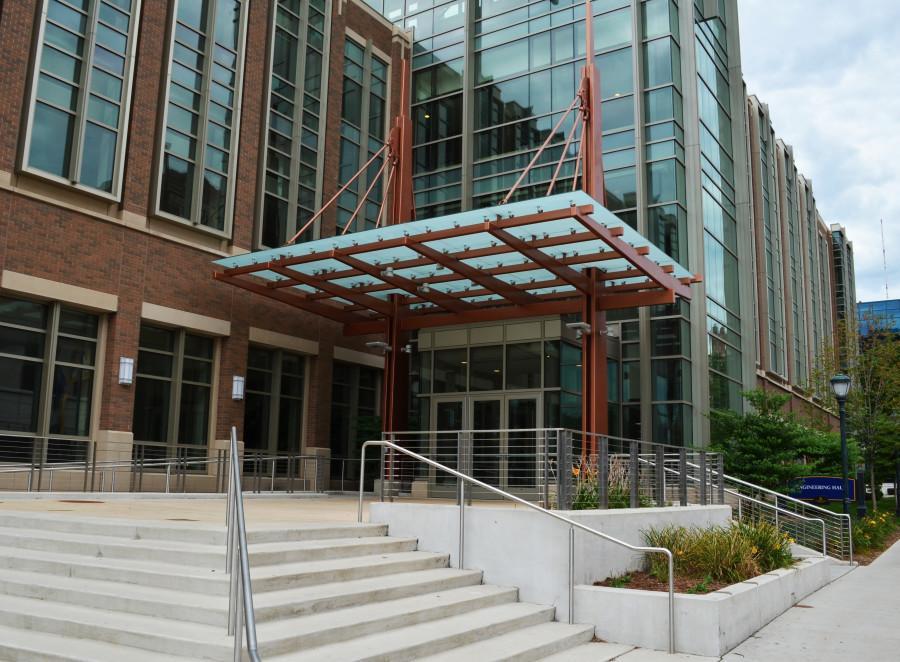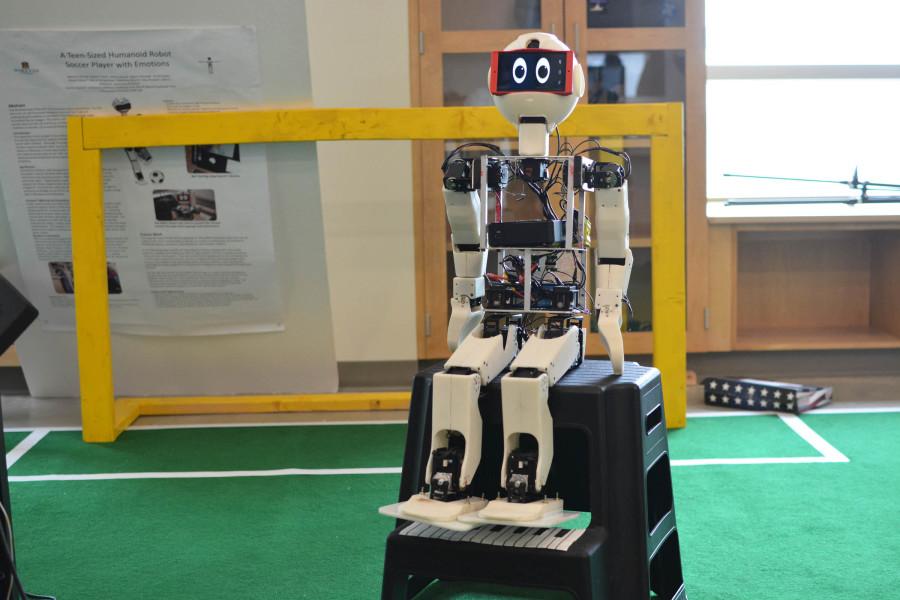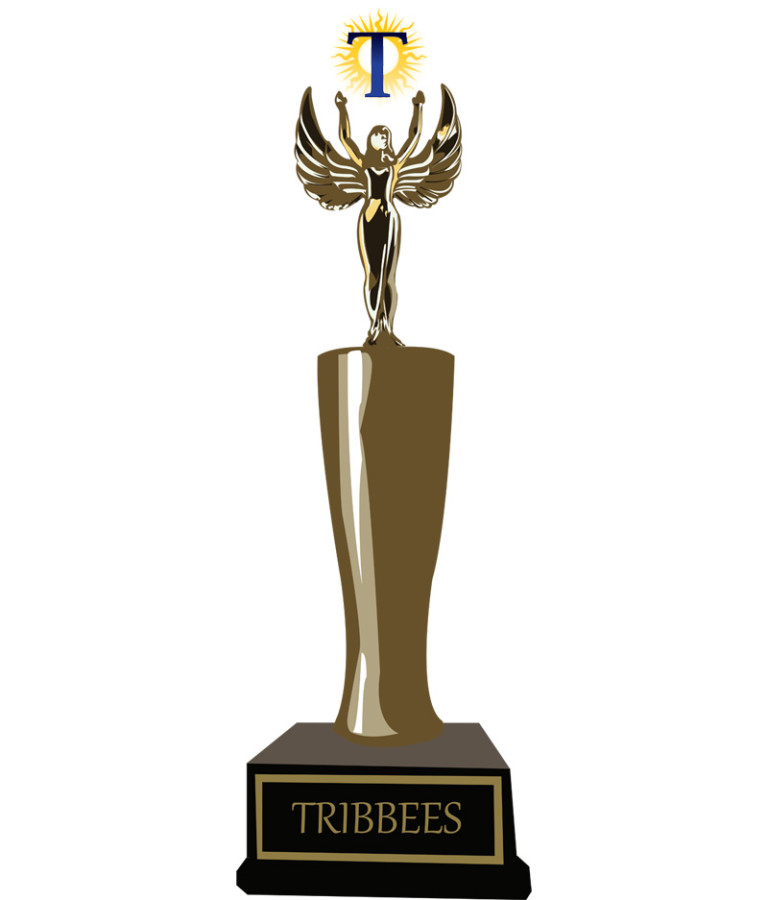After competing in a worldwide robotic soccer competition in July, Marquette’s Humanoid Engineering & Intelligent Robotics lab received a $500,000 grant in September from the National Science Foundation.
The robots created for RoboCup 2014, the robotic soccer competition, are different from the ones that will be created through the new grant. The building process may become an educational curriculum that can teach youth how the technology works.
Andrew Williams, director of the HEIR Lab, will head the project along with Kimberly Scott of the University of Arizona. The project focuses on women and other minorities in the engineering field.
STEM concepts, that are used as concrete ideas to educate children, are what form the base of the program.
“You need to start when they’re younger, get them interested and show them that you can do this kind of programming and design,” Williams said.
Scott is an expert on cultural responsiveness, which is the premise for the robots. Culturally responsive teaching is “a pedagogy that crosses disciplines and cultures to engage learners while respecting their cultural integrity” according to the Association for Supervision and Curriculum Development organization.
Marquette is also in the process of applying for another NSF grant, the Innovation Core Program grant, which would help expand upon this idea in cultural responsiveness. This particular grant “would help see how commercially viable a low cost robot curriculum is” Williams said. “Different students working on different aspects that we all have to integrate together.”
Williams said people may not necessarily see the connection between robots and the culture. However, Williams conducted a study of a Native-American heritage and discovered that many Native-Americans wanted to learn the native language that many of their elders spoke.
The idea of cultural responsiveness is in place for the program, since kids who build the robot can also learn the language during the process.
The grant is currently set on a year-and-a-half-long timeline to see what can be accomplished. In addition to holding multiple workshops throughout Milwaukee, Williams and Scott intend on launching the curriculum this summer with a five-week program.
Williams emphasized the fact that it is a “very competitive grant” and that the idea of cultural responsiveness “is something that no one has done, that we are trying to do, and we got funded for it.”

